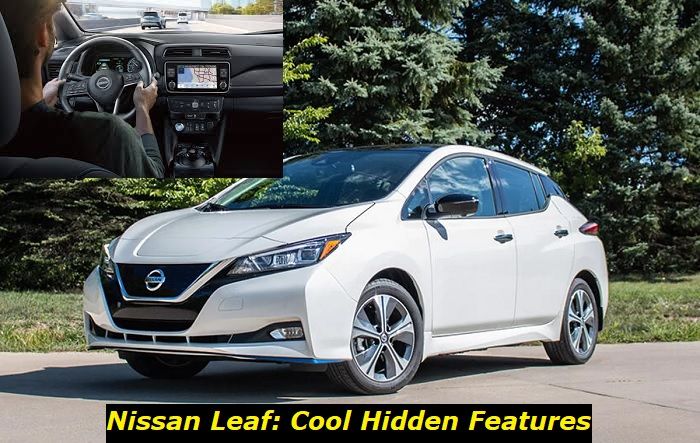When you buy a truck, you want it to last for ages. We all remember those cool Chevy and Ford trucks that were made in the 1980s. Some of them are still in service having passed over 500 000 miles. And in some of these trucks, owners still don't have many technical problems. That's because these vehicles were made as heavy-duty trucks and the technologies were all very durable.
We decided to look at modern trucks and talk about their longevity. We will divide our article into a couple of sections and will talk about different trucks by the most popular manufacturers in the US. Unfortunately, we will not have time to talk about every single truck model, but we'll try to cover as many models as possible.

Here's what we are going to talk about:
- What are the weakest points of modern trucks?
- Ford trucks' longevity and durability.
- How many miles can a RAM truck last?
- Chevrolet trucks longevity - modern lineup.
Let's get started!
The weakest units of a modern truck - what are they?
Every type of car has its own weak points. Like sedans and hatchbacks have low ride height which causes damages on any road outside asphalt highways. Or SUVs are too heavy and burn a lot of fuel compared with smaller cars. What about trucks? What are the worst factors of having a truck and what can cause poor longevity of such a vehicle?
For learning more about these weak points in modern trucks, we decided to investigate on some specialized forums and also to read the reviews of the truck owners.
And here's what we've found:
- Steering system failures. Pickup trucks are usually RWD vehicles (rear-wheel drive) and the load comes to the rear end of the truck. The front wheels are unloaded and the steering becomes really hard. Because of changes in steering patterns, the racks don't live long.
- Diesel problems. Many trucks still use diesel engines. And this is good for the first 100 000 miles. But after that, these engines cause a lot of problems like clogged EGR valves, bad cat converters, stalling, bad cold start, fuel injection problems. These problems are hard and expensive to deal with.
- Transmissions. Trucks are usually bought for towing and transporting loads in beds. If you overload your truck even a little, the transmission may say goodbye to you very soon. The automatic transmissions may only be used according to requirements.
- Rear suspension. Trucks usually experience loads at the rear end. Whether you put a lot of weight in the bed of your truck, or just tow something heavy, the rear suspension comes into action. And you will have to repair it quite often which is not a cheap thing to do.
- Body problems. Trucks are often driven on bad roads, they go off-roading sometimes. If you hit the bottom of the vehicle with a stone or with something else, you may just destroy the paint or other protection. This will cause corrosion and big problems very soon. Even if you have a new truck.
- Interior problems. The longevity of the interior parts of a truck is a very personal factor. If you use the truck for work, you will most likely drive it with greasy hands at times, you will get into the truck in dirty clothes. This will add to the tear and wear of the interior parts.
As you see, problems are everywhere. It doesn't mean that all trucks will break down as soon as you buy them. Most of the trucks are very durable. We just made examples of what can be broken first.
Also, you should understand that the longevity of your trucks depends much on the service intervals and on overloading. If you understand the manufacturer's requirements, you will drive your truck much longer. All the problems with suspension and steering usually occur when you overload the truck and tow more than the towing capacity says you can.
Ford trucks - longevity and problems
Ford makes a lot of trucks. The F-Series and the Ranger are pretty cool vehicles. They all have reliable engines (even the ones that are EcoBoost and low-displacement), wonderful transmissions, great RWD or AWD systems, etc.
But these trucks also have their problems. We had a chance to investigate Ford F150 but we are pretty sure that all other trucks will have the same longevity. So, the F150 will last between 200 000 and 350 000 miles depending on the conditions of use and servicing.
Here are the main problems:
- newer turbocharged engines are not as long-lasting, they will start showing the first problems at 150 000 miles;
- body issues are common for trucks after 150 000 miles even without much off-roading, the area around wheels may get some rust;
- the interior will wear extensively after 100 000 miles or even sooner, depending on how you use your truck;
- oil leaks are common - the oil can leak from the engine or from the gearbox, the rear transfer box can also be the source of oil drops;
- tires may wear very fast because the wheel alignment is needed quite often, but no one does it that often.
We would say that Ford trucks are very reliable. We saw the vehicles that have already passed 300 000-mile mark and are still running like new. Of course, for such results, you will need to service your truck regularly and to ensure that the truck is not overloaded.
RAM trucks longevity - better than Ford?
We would say that RAM trucks are a little worse in terms of longevity than Ford vehicles. RAM 1500 with any of the modern engines will last approximately 200 000 miles. If serviced regularly and according to the requirements, it will go 250 000 miles. We saw a lot of vehicles with 200 000 miles on the clock delivered to scrapyards and online salvage auctions. Which is frustrating.
But the main problems of RAM trucks are with the newer engines and transmissions. These units are developed to deliver better environmental features like CO2 emissions. But the company has to sacrifice the longevity of the big engines to provide power, torque, and also good emissions.
That's why a lot of companies now turn their attention to electric trucks. But we haven't seen any serious electric truck projects from Dodge which is strange. We hope they will present one soon, otherwise, Dodge trucks may become history in some years.
But still, RAM trucks are not bad in terms of longevity if you service them correctly.
Chevy trucks - legendary longevity
Chevrolet is one of the favorite vehicle manufacturers in America. This company makes some truck models and offers pretty good engines for them. Chevy doesn't like small turbocharged engines but has to use them in some trims because of the EPA requirements.
We see only some problems in modern Chevrolet trucks:
- Body issues. Again, this depends much on how you use your truck. But anyway, body rust has been reported many times even for relatively new trucks.
- Transmissions. Unfortunately, this is a classic problem of Chevy trucks. To drive your pickup truck with an original transmission for a long time, you should stick to the service requirements.
- Selector switch problems. Very bad trouble that can cause an expensive repair. The transmission selector system is a really weak point in these vehicles.
- Engine starting issues. That's quite strange, but we've found many claims that Chevy truck engines don't start well when cold or just fail to start suddenly.
So, the average longevity of the Chevy trucks is now about 300 000 miles. This is the mileage you can expect from all engines and all transmissions. Some of them will even show better results. Especially, if we are talking about those big naturally aspired engines that came from the 1990s and are still great.
The average mileage of 300 000 miles is the best in class. We also know some Chevy heavy-duty trucks with over 500 000 miles on the clock. You will just need to service your vehicle on time to avoid engine damage and other problems.
Final words
As you see, the longevity of modern trucks is not that bad at all. We know many trucks that were made in 2015-2017 and they have successfully passed a half-million-mile mark. But we also know trucks that have only completed 100 000 miles and are now in a service station with problems that are totally unfriendly for the budgets of their owners. These problems include engine and transmission damage, body rust, problems with electronics, etc.
The mileage of your truck depends much on you and on the quality of regular maintenance. Stick to the requirements and tips from the manufacturer of your truck to prolong the life of the vehicle. Otherwise, you may start repairing your truck regularly very soon. Unfortunately, the new trucks don't show now the longevity of the legendary trucks from the 1980s anymore. But they are still better than SUVs or sedans from the same manufacturers.
About the authors
The CarAraC research team is composed of seasoned auto mechanics and automotive industry professionals, including individuals with advanced degrees and certifications in their field. Our team members boast prestigious credentials, reflecting their extensive knowledge and skills. These qualifications include: IMI: Institute of the Motor Industry, ASE-Certified Master Automobile Technicians; Coventry University, Graduate of MA in Automotive Journalism; Politecnico di Torino, Italy, MS Automotive Engineering; Ss. Cyril and Methodius University in Skopje, Mechanical University in Skopje; TOC Automotive College; DHA Suffa University, Department of Mechanical Engineering






Add comment